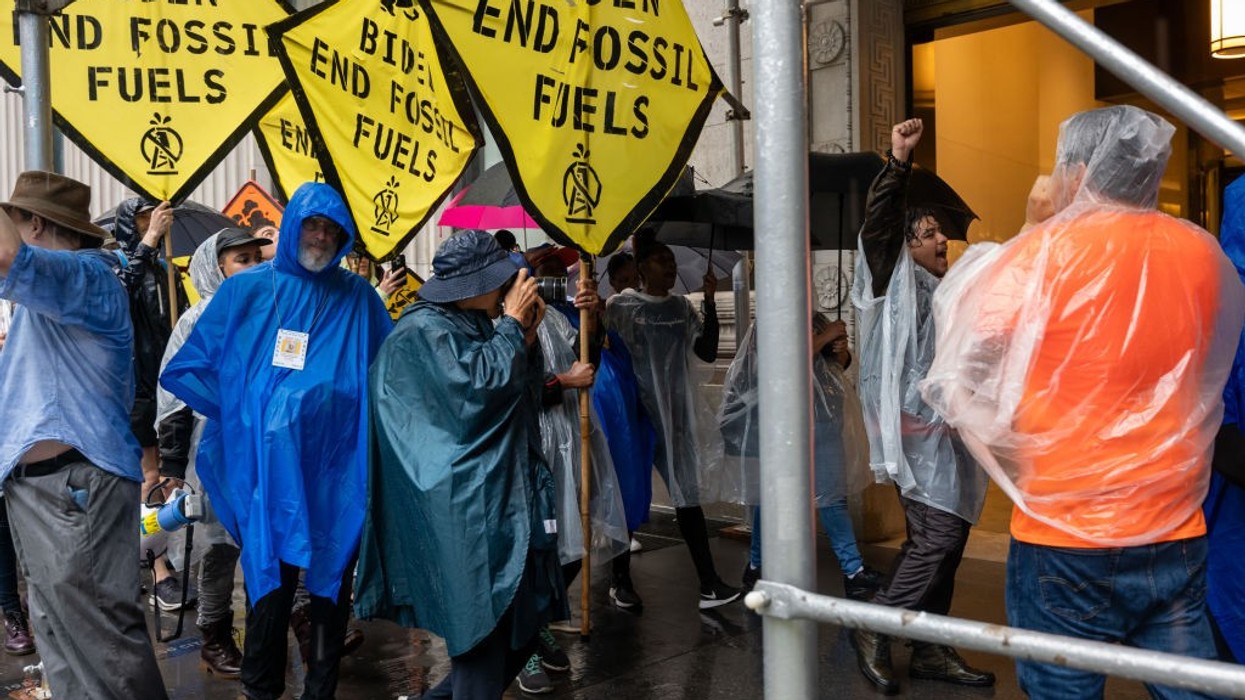Trump Cuts, NATO Withdrawals Weakening Landmine Treaty and Endangering Lives
"The Trump administration's deep cuts to foreign aid are now disrupting mine clearance operations," one campaigner said ahead of International Day of Mine Action.
International Day for Mine Action on April 4 is typically an occasion to take stock of humanity's progress toward eradicating the scourge of landmines; however, with the administration of U.S. President Donald Trump dramatically slashing foreign aid and several European Union and North Atlantic Treaty Organization members withdrawing from the landmark Mine Ban Treaty, campaigners say there's little worth celebrating this Friday.
Mary Wareham, deputy director of Human Rights Watch's Crisis, Conflict, and Arms program, said Tuesday that International Day of Mine Action "is a moment to highlight the work of the thousands of deminers around the world who clear and destroy landmines and explosive remnants of war."
"They risk their lives to help communities recover from armed conflict and its intergenerational impacts," Wareham—a joint recipient of the 1997 Nobel Peace Prize for her work with the International Campaign to Ban Landmines (ICBL)—continued. "But due to devastating developments driven largely by two countries that have not banned antipersonnel landmines, the United States and Russia, this Mine Action Day does not feel like much of a celebration."
"For over three decades, the U.S. has been the world's largest contributor to humanitarian demining, mine risk education, and rehabilitation programs for landmine survivors," Wareham noted. "But the Trump administration's deep cuts to foreign aid are now disrupting mine clearance operations. Thousands of deminers have been fired or put on administrative leave pending the completion of so-called reviews. It's unclear if this crucial support will continue. The price of Trump administration cuts will be evident as casualties increase."
Responding to the Trump cuts, Anne Héry, advocacy director at the Maryland-based group Humanity & Inclusion—a founding ICBL member—said:
Any delay in clearance prolongs the danger of contamination by explosive ordnance for affected populations. Clearance operations save lives, especially children, who are often victims of explosive devices. They also enable communities to use land for agriculture, construction, and other economic activities. This funding cut will further displace vulnerable populations who cannot return home due to contamination. It will also result in limited access to schools, healthcare facilities, and water sources in contaminated areas.
The Trump administration's seeming disdain for Ukrainian—and by extension much of Europe's—security concerns, combined with Russia's ongoing invasion and occupation of much of Ukraine, has some E.U. and NATO members looking for other ways to defend against potential Russian aggression.
Earlier this month, Poland, Estonia, Latvia, and Lithuania said they would withdraw from the 1997 Convention on the Prohibition of the Use, Stockpiling, Production, and Transfer of Anti-Personnel Mines and on their Destruction, also known as the Ottawa Treaty and the Mine Ban Treaty.
In a joint statement, the four countries' defense ministers explained that "military threats to NATO member states bordering Russia and Belarus have significantly increased" and that "with this decision we are sending a clear message [that] our countries are prepared and can use every necessary measure to defend our security needs."
As Wareham also noted: "Russian forces have used antipersonnel landmines extensively in Ukraine since 2022, causing civilian casualties and contaminating agricultural land. Ukraine has also used antipersonnel mines and has received them from the U.S., in violation of the Mine Ban Treaty."
In another blow to the Mine Ban Treaty, Finnish Prime Minister Petteri Orpo announced Tuesday that Finland is preparing to quit the pact, a move he said "will give us the possibility to prepare for the changes in the security environment in a more versatile way."
#Estonia #Latvia #Lithuania #Finland #Poland – DO NOT EXIT the Mine Ban Treaty! Your choices shape the future. "Young people are watching, and we’re counting on you" to uphold the ban on landmines! #MineFreeWorld #ProtectMineBan
[image or embed]
— International Campaign to Ban Landmines (@minefreeworld.bsky.social) April 1, 2025 at 7:04 AM
Wareham said that "the proposed treaty withdrawals raise the question of what other humanitarian disarmament treaties are at risk: chemical weapons? cluster munitions? The military utility of any weapon must be weighed against the expected humanitarian damage."
"To avoid further eroding humanitarian norms, Poland and the Baltic states should reject proposals to leave the Mine Ban Treaty," she added. "They should instead reaffirm their collective commitment to humanitarian norms aimed at safeguarding humanity in war."


